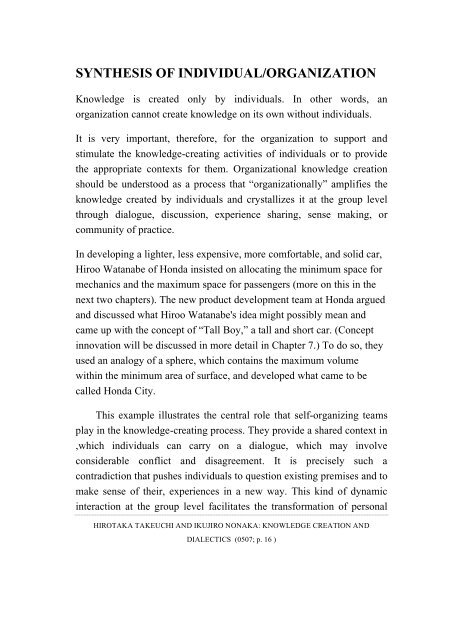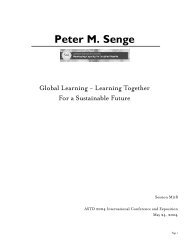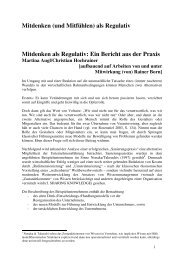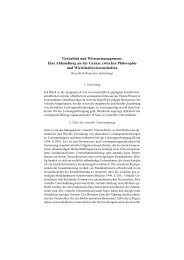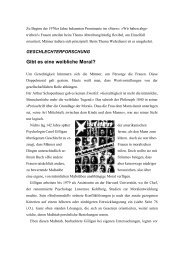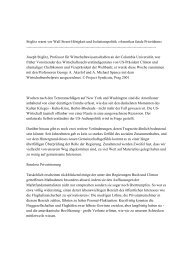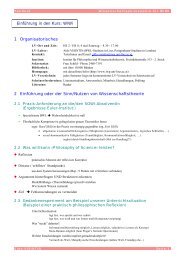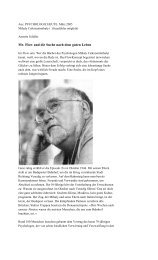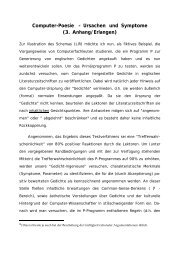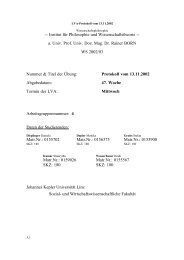KNOWLEDGE CREATION AND DIALECTICS
KNOWLEDGE CREATION AND DIALECTICS
KNOWLEDGE CREATION AND DIALECTICS
Create successful ePaper yourself
Turn your PDF publications into a flip-book with our unique Google optimized e-Paper software.
SYNTHESIS OF INDIVIDUAL/ORGANIZATION<br />
Knowledge is created only by individuals. In other words, an<br />
organization cannot create knowledge on its own without individuals.<br />
It is very important, therefore, for the organization to support and<br />
stimulate the knowledge-creating activities of individuals or to provide<br />
the appropriate contexts for them. Organizational knowledge creation<br />
should be understood as a process that “organizationally” amplifies the<br />
knowledge created by individuals and crystallizes it at the group level<br />
through dialogue, discussion, experience sharing, sense making, or<br />
community of practice.<br />
In developing a lighter, less expensive, more comfortable, and solid car,<br />
Hiroo Watanabe of Honda insisted on allocating the minimum space for<br />
mechanics and the maximum space for passengers (more on this in the<br />
next two chapters). The new product development team at Honda argued<br />
and discussed what Hiroo Watanabe's idea might possibly mean and<br />
came up with the concept of “Tall Boy,” a tall and short car. (Concept<br />
innovation will be discussed in more detail in Chapter 7.) To do so, they<br />
used an analogy of a sphere, which contains the maximum volume<br />
within the minimum area of surface, and developed what came to be<br />
called Honda City.<br />
This example illustrates the central role that self-organizing teams<br />
play in the knowledge-creating process. They provide a shared context in<br />
,which individuals can carry on a dialogue, which may involve<br />
considerable conflict and disagreement. It is precisely such a<br />
contradiction that pushes individuals to question existing premises and to<br />
make sense of their, experiences in a new way. This kind of dynamic<br />
interaction at the group level facilitates the transformation of personal<br />
HIROTAKA TAKEUCHI <strong>AND</strong> IKUJIRO NONAKA: <strong>KNOWLEDGE</strong> <strong>CREATION</strong> <strong>AND</strong><br />
<strong>DIALECTICS</strong> (0507; p. 16 )


